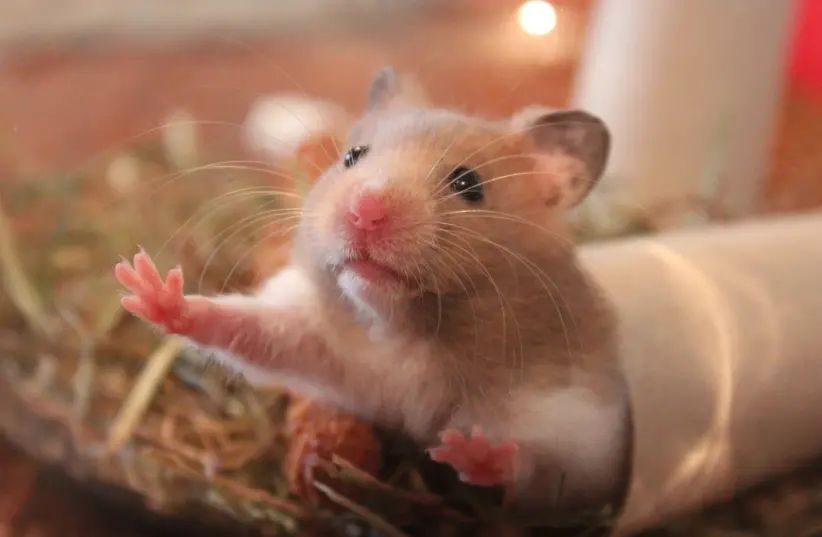COVID-19: Hamsters can infect humans with the coronavirus - study
12:35, 1 February

Hamsters are popular pets around the world, but they may be able to spread COVID-19 (illustrative).
(photo credit: PIXABAY)
Hamsters were found to have brought the Delta variant back to Hong Kong. They are the second known animal to be able to infect humans with COVID-19, after minks.
While the exact origins of the virus are under debate, it is widely thought that it spread from animals (specifically bats) to humans in what is known as zoonotic transmission. And according to this new study, published in The Lancet in pre-print and awaiting peer-review, hamsters are one such animal that can spread the virus to humans. What makes this study especially notable is that it can spread from hamsters back to humans.
- Share on Facebook
- Share on VK
- Share on Twitter
The Delta variant of SARS-CoV-2, the novel coronavirus that causes COVID-19, can be transmitted from humans to hamsters and then be transferred back to humans, according to a new study.
To date, the only other animal known to transmit SARS-CoV-2 back to humans was in the case of minks, which resulted in a mass culling of mink farms around the world, especially in Denmark. However, it seems hamsters may be able to do it too. This first-ever hamster-to-human transmission was found on January 15, 2022 in Hong Kong. Currently, at least two people in Hong Kong were confirmed to have been infected by these hamsters.
If the findings are accurate and hamsters can indeed transmit COVID-19 to humans the dangers of COVID-19 is the risk that this could become a serious concern, as they would serve as yet another vector to spread the virus worldwide.
Due to Hong Kong's strict measures (as well as airport screenings and quarantine measures ) to stop the spread of COVID-19, the city had seen a sharp decline in cases.
Today in Hong Kong were, until now, of the Omicron variant. But Delta has returned because of these hamsters, showing how they can unwittingly spread the virus even further while there can be other possible danger this can cause.
If the coronavirus can have more hosts and continue to spread among them as a result more mutations and variants can ultimately develop.
An essential issue for stopping the further spread of COVID-19 and keeping the pandemic from getting even worse in the future is the study of how the virus spreads in animals and preventing it from doing so.






